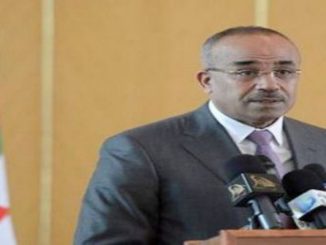
Tunisian activists say they are frustrated by the slow progress on reforms to improve civil liberties six years after an uprising calling for more freedoms in the North African country.
The 2011 revolution that toppled longtime dictator Zine El-Abidine Ben Ali ushered in a new era of freedom of expression and the creation of dozens of civil society groups and political parties.
But activists say the law still contains “oppressive” and “backward” provisions inconsistent with a 2014 constitution guaranteeing freedom of conscience, protection of privacy, and equality between men and women.
Since the uprising, Amna Guellali of Human Rights Watch says, Tunisian civil society has more openly been tackling issues that were previously taboo such as drugs.
But they have made limited headway in terms of legal reform, as they face “a huge amount of resistance” from politicians and parts of the population, she says.
“We feel like we’re going round in circles… It’s frustrating,” Guellali says. Discrimination against women remains rife, particularly in matters of inheritance, despite Tunisia being viewed as a regional pioneer in women’s rights.
In December, the government said it wanted to amend a law that allows men who carry out sexual acts with girls under the age of 15 to avoid prosecution if they marry their victims. But Parliament has yet to do so, or to approve a wider law to curb violence against women.
And in recent years hundreds of young Tunisians have been jailed for smoking cannabis under a law from Ben Ali’s era imposing a mandatory one-year prison sentence for narcotics use.
Rights lawyer Ghazi Mrabet, who has campaigned against the anti-narcotics law, says political horse-trading causes these laws to stall in Parliament.
The reforms face opposition from conservatives “in all parties, not just among the radicals,” he says.
Wahid Ferchichi, of the Adli association for the defense of individual liberties, says that a complete overhaul of Tunisia’s legal system is needed.
As laws like the one to stop violence against women address fundamental rights issues, they should “lead to the reform of the penal law, personal status law and labor law,” he says.
Ferchichi believes lawmakers are wary of backing new legislation on controversial issues out of “fear of not winning the next elections.”
Walid Larbi, from the Beity association, says the proposed reforms threaten the “all-Tunisian, all-Muslim” image that the country’s society has of itself.
But there is some progress.
Tunisia has amended a law so that women no longer need permission from their husbands to travel abroad with their children.
President Beji Caid Essebsi has also announced measures to limit the number of prison terms for cannabis use. Even publicly discussing civil rights is a huge achievement, campaigners say.
“We’re starting public debates, and that’s extraordinary,” says Hajer El-Kefi from Euromed Rights.
In their latest campaign, rights groups have called on authorities to scrap a ban on Tunisian Muslim women marrying non-Muslims.
El-Kefi says she expects criticism. “But we’ll keep up the fight,” she says.



